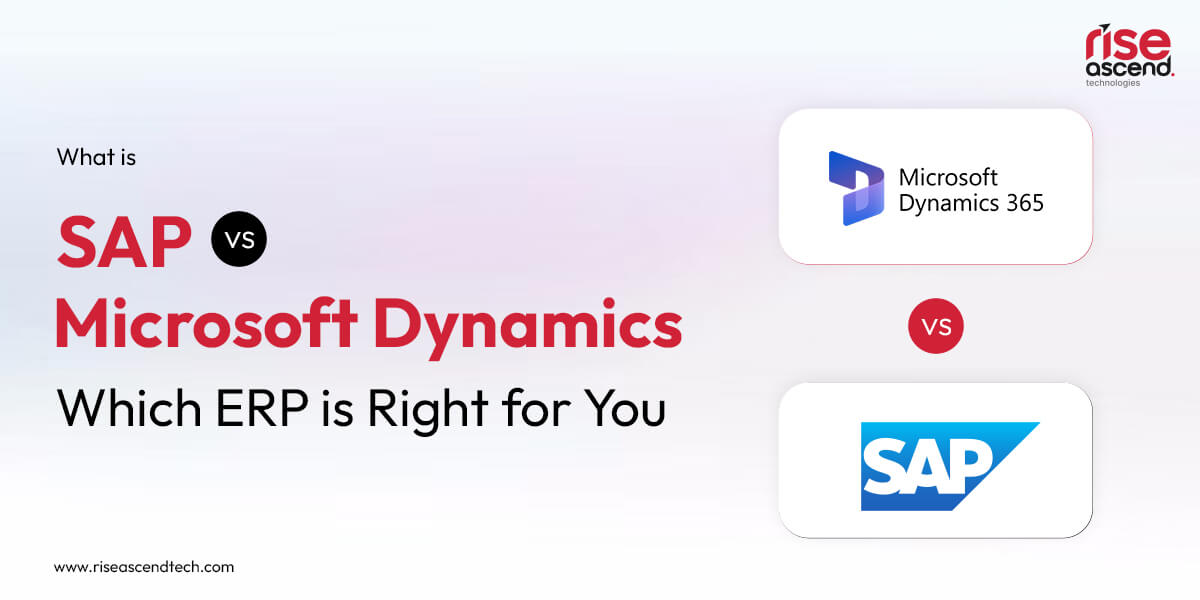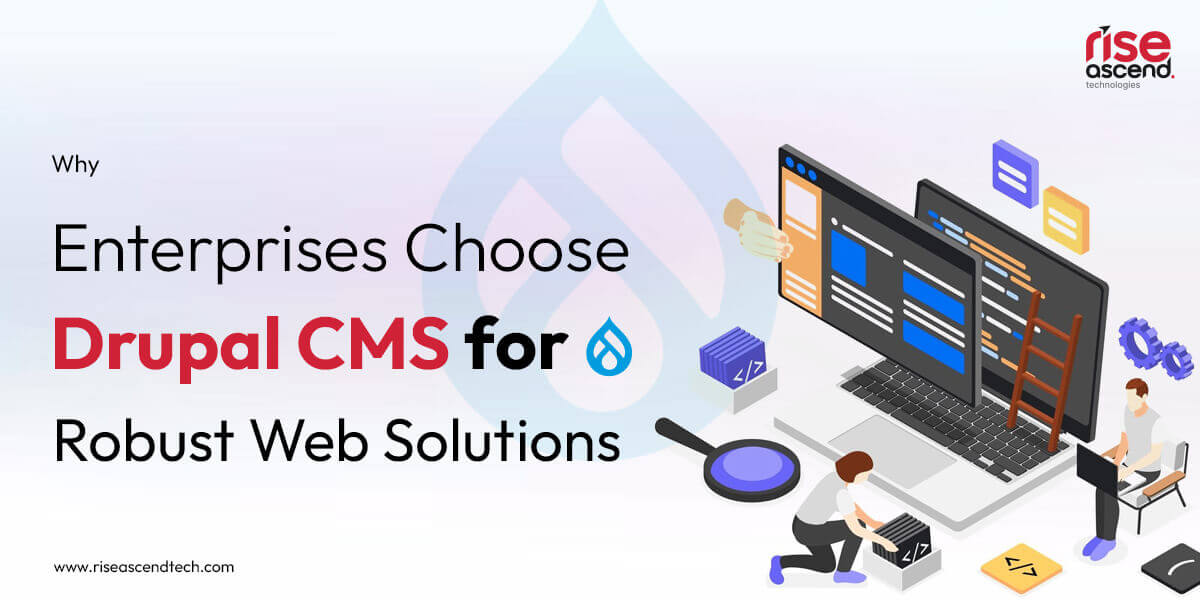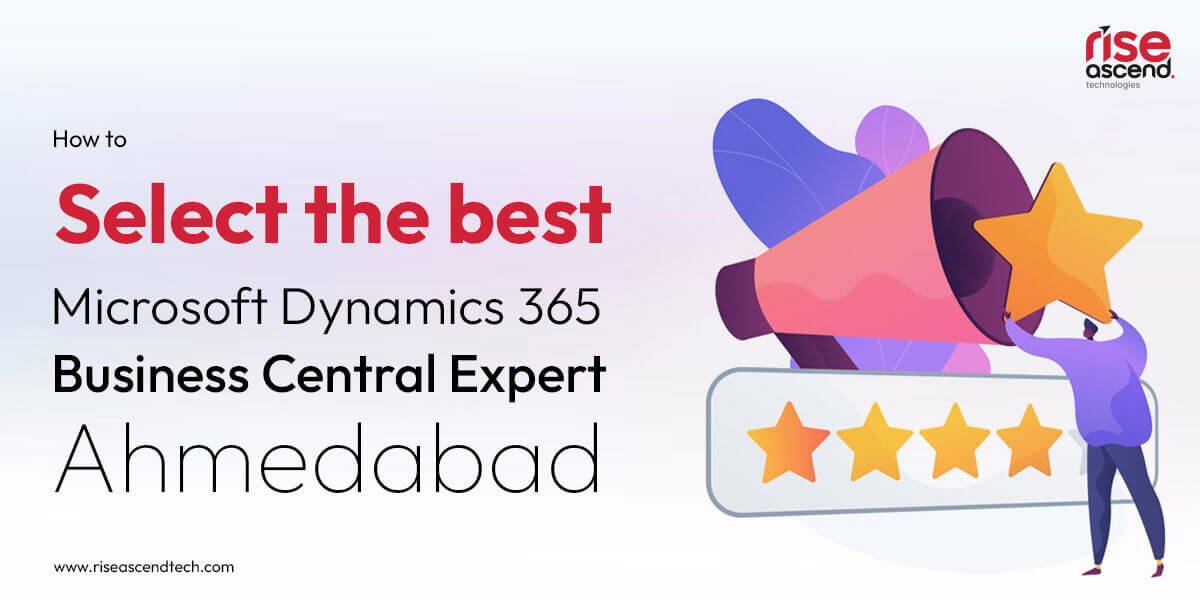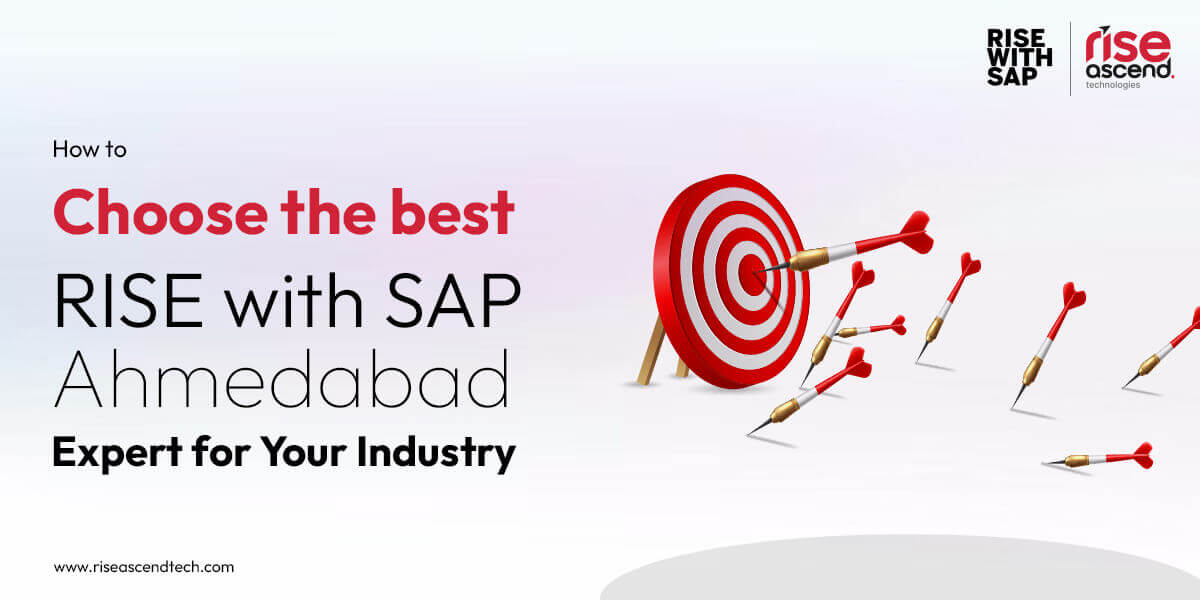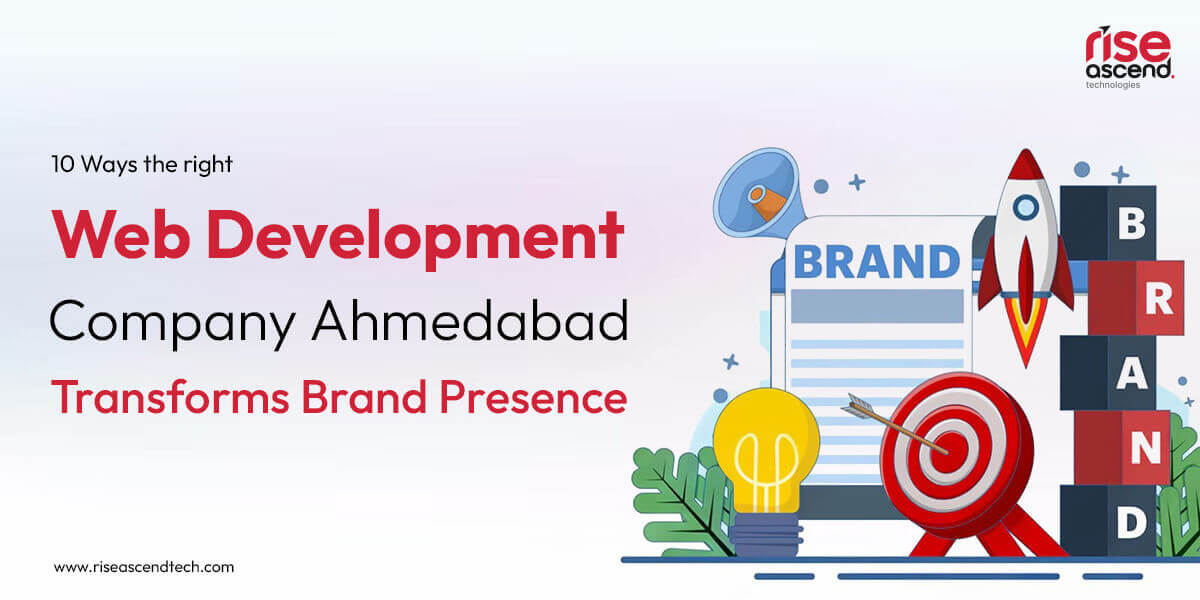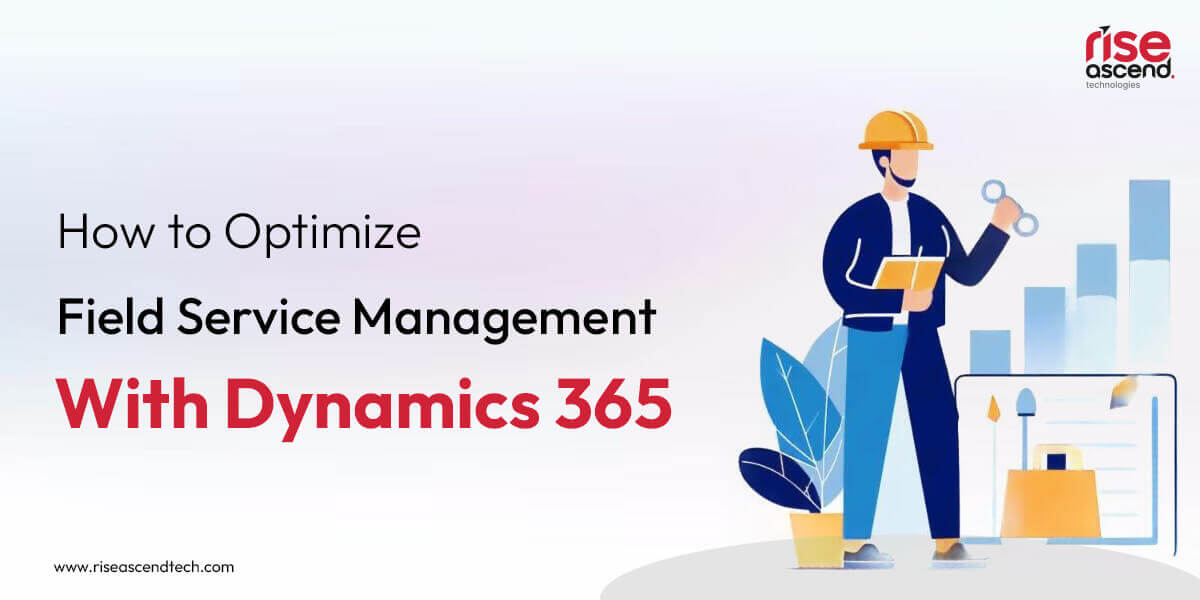If you are confused in the SAP vs Microsoft Dynamics choice, then you are in the right place. Before we proceed, when it comes to enterprise operations, there is no one-size-fits-all solution. Just as your approach to your business is unique, your needs at a period of time vary and the solution you decide to with must best correspond to the roadmap of your growth and present limitations.
Running a business means handling many moving parts inventory, finances, payroll, customer orders, which is why Enterprise Solutions can come to your aid if you know which is the right option for your specific needs. It can get messy, fast. That is why many companies turn to ERP software. It helps organize everything in one place. In fact both SAP and Microsoft Dynamics are two well-known ERP systems. They both help you manage your business better. But they are not the same.
Picking the right one for your specific business needs can save you time, money and headaches. This article breaks things down in plain language. We will help you understand how these systems work, what makes them different, and which one could be the best fit for your business.
What ERP Systems Do for Businesses as Enterprise Solutions
Running a company often means using many different tools. One for accounting, another for stock, and something else for HR. ERP, Enterprise Resource Planning becomes the base that brings everything together as the ultimate enterprise solution.
ERP stands for Enterprise Resource Planning. Think of it as a digital control room for your business. It connects all your main activities—like tracking inventory, handling bills, managing staff, and dealing with customers.
Instead of juggling Excel sheets, emails, and different software, ERP puts everything under one roof. Here is what it helps with:
- Automates tasks so your team can work faster
- Gives you real-time updates and better decisions
- Grows with your business
- Helps with taxes, audits, and legal compliance
If your business feels stretched or disconnected, ERP could be the solution. It turns scattered efforts into smooth operations.
Understanding SAP and Microsoft Dynamics ERP
There are many ERP platforms out there. SAP and Microsoft Dynamics are among the most popular. But they serve different kinds of businesses.Let us look at both platforms in simple terms:
SAP
- One of the oldest names in ERP
- Strong in manufacturing, logistics, and global businesses
- Offers products like SAP S/4HANA and SAP Business One
- S/4HANA is for large companies, while Business One is for growing firms
Microsoft Dynamics
- Part of the Microsoft family
- Easy to use with Outlook, Excel, and Teams
- Includes products like Dynamics 365 Business Central and Dynamics 365 Finance & Supply Chain Management
- Business Central is suited to companies who are starting from a relatively smaller scale growing quickly over time
Both offer cloud-based versions and pre-built templates for different industries. Knowing the difference helps you pick what fits best.
Comparing Features Between SAP and Dynamics
Now that you know the players, let us see how they stack up. This side-by-side feature comparison will help you spot what matters most to you.
| Feature | SAP S/4HANA | Microsoft Dynamics 365 |
| Industry Depth | Strong in manufacturing & logistics | Strong in retail, services, and SMB |
| User Interface | Structured but complex | Easy and familiar (like Office) |
| Customization | Powerful but requires expertise | Easier with low-code tools |
| Integration | Works best with SAP tools and advanced logistics systems | Works best with Microsoft tools |
| Analytics & Reports | Built-in analytics + SAP Analytics Cloud | Power BI integrated |
| Pricing | Custom Licensing | Modular and scalable |
| Partner Support | Global Partners and Certified Experts | Large, agile partner network |
The best fit depends on what your business needs most—depth, simplicity, cost, or compatibility.
Best Time to Choose SAP ERP Software
SAP is powerful. It is designed for businesses that operate at a larger scale or in industries with strict rules.
Choose SAP if:
- You work in manufacturing, oil & gas, pharma, or logistics
- Your company already uses SAP in other locations
- You need strong audit and compliance tools
- You have an IT team that can manage complex software
SAP makes sense when your needs are big, your operations are global, or your industry demands tight controls and stringent compliances at scale.
Best Time to Choose Microsoft Dynamics ERP
Microsoft Dynamics is easier to use and quicker to set up. It is designed for businesses that want value without over-complication and easier integrations with your existing Microsoft Solution ecosystem.
Choose Dynamics if:
- You are a growing business looking for better control
- You use Excel, Outlook, or Teams already
- You need better tools for finance, stock, or customer service
- You want software that feels familiar to your team
Dynamics is ideal for small to mid-sized businesses wanting something flexible, modern, and less heavy-duty.
Steps to Choose the Right ERP System
Choosing an ERP can feel overwhelming. But with a step-by-step approach, you can make a confident decision.
- List your key processes – Start with how you manage sales, stock, people, and money.
- Spot the gaps – Where do mistakes or delays happen now?
- Pick your must-haves – Choose 3 to 5 features that really matter.
- Check your current tools – Are you a Google or Microsoft-based team?
- Think about your team – How much training can they handle?
- Set a budget – What can you afford now, and later?
- Talk to a partner – Find an expert who knows both systems.
Use this guide as a filter. It helps you focus on the ERP that solves real problems for your business.
Real-World ERP Decisions by Businesses
The best way to understand ERP is to see how others have used it. These stories show real decisions and real results.
Food Manufacturer
A food company needed better control of inventory and customer orders. SAP had more features but was complex. They picked Dynamics 365 Business Central because it was faster to set up.
Pharma Exporter
A pharmaceutical company needed strict global compliance. SAP S/4HANA fit their needs. They already used SAP in another country and expanded it.
Retail Chain
A growing retail business used Outlook and Excel. They moved to Dynamics 365 for easy team adoption and better sales tracking.
Auto Parts Supplier
A parts supplier wanted detailed manufacturing workflows. GROW with SAP gave them the industry depth they needed.
Engineering Firm
An engineering firm wanted better project tracking. Microsoft Dynamics helped them manage quotes, invoices, and site work in one place.
These cases show that there is no one-size-fits-all. The right ERP depends on where you are and where you want to go.
Key Factors Before Making a Decision
You now know the basics. But how do you turn that into a decision? It starts with clarity on your business reality.
Tips to consider:
- Your industry and what it demands
- Your team’s comfort with tech
- How much time and money you can invest
- Whether you prefer Microsoft or SAP tools
- How quickly you want to go live
Choosing an ERP is like choosing a business partner. You want one that grows with you, not against you.
Final Thoughts and What To Do Next
You are not just picking software. You are choosing how your business will run and grow. SAP and Microsoft Dynamics are both trusted ERP platforms. Each has its strengths. What matters most is picking the one that fits how your business works.
You do not have to decide alone. Talk to a trusted ERP advisor. They can help map your needs, compare systems, and guide you on the right path. Explore our ERP consulting services to get started with clarity and confidence. Call 079 4917 1712 today for a quick consultation.
